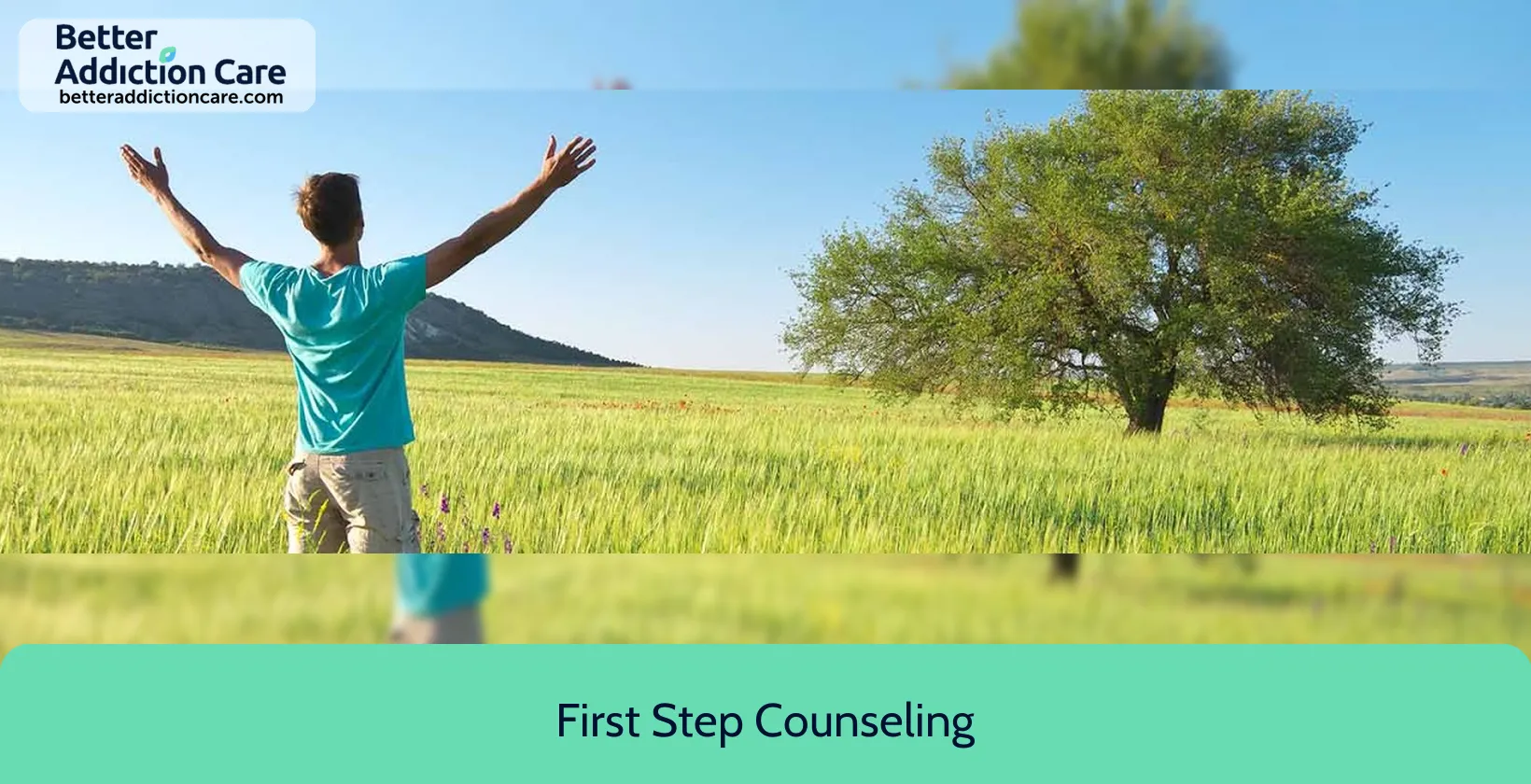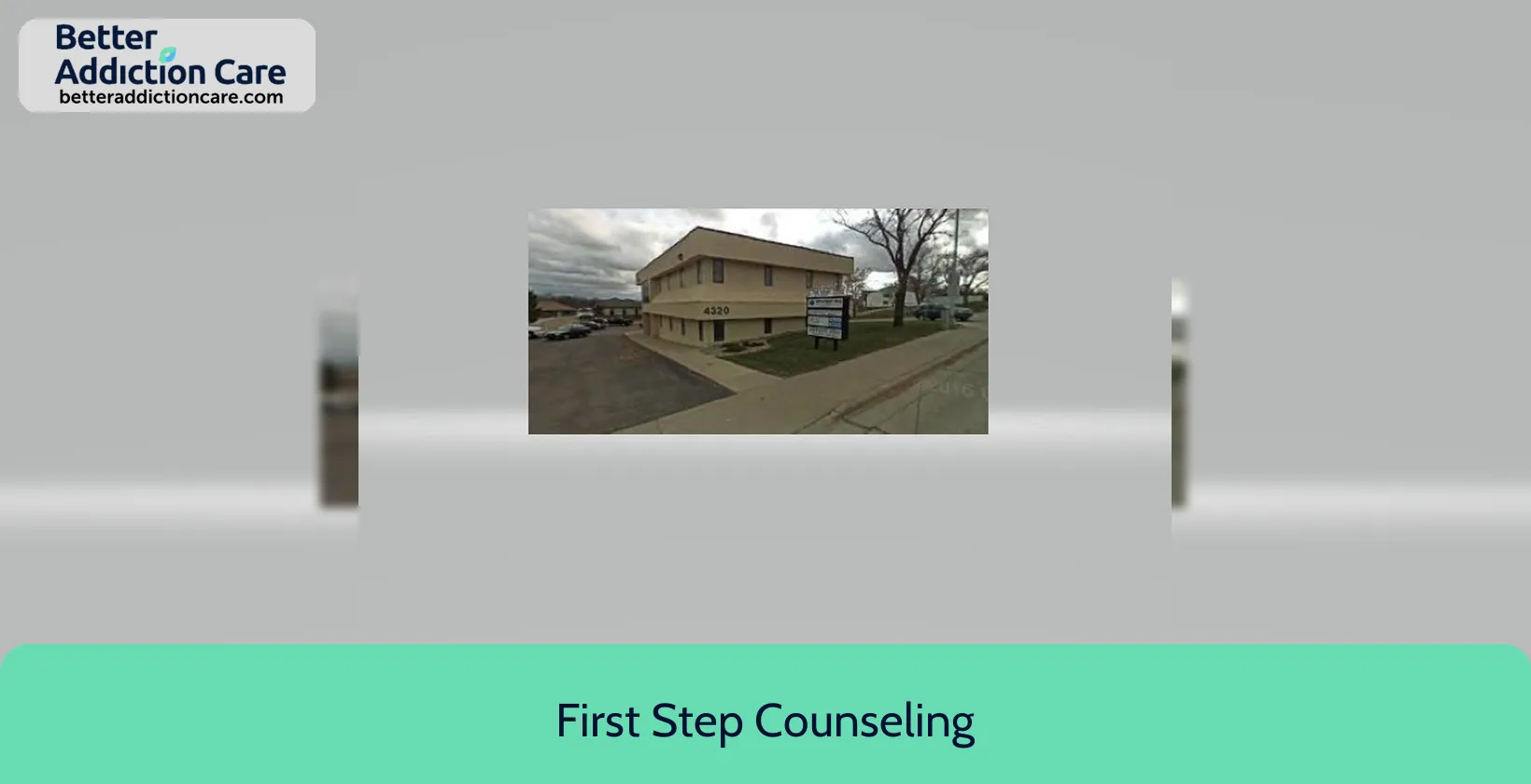First Step Counseling
Overview
First Step Counseling is a substance abuse treatment center for people seeking treatment near Minnehaha County. As part of their treatment modalities for recovery, First Step Counseling provides substance use disorder counseling, group counseling, and 12-step facilitation during treatment. First Step Counseling is located in Sioux Falls, South Dakota, accepting cash or self-payment for treatment.
First Step Counseling at a Glance
Payment Options
- Cash or self-payment
Assessments
- Comprehensive substance use assessment
- Screening for substance use
- Professional interventionist/educational consultant
Age Groups
- Adults
- Seniors
- Young adults
Ancillary Services
- Case management service
- Specially designed program for DUI/DWI clients
Highlights About First Step Counseling
6.62/10
With an overall rating of 6.62/10, this facility has following balanced range of services. Alcohol Rehabilitation: 8.00/10, Drug Rehab and Detox: 6.00/10, Insurance and Payments: 6.00/10, Treatment Options: 6.49/10.-
Alcohol Rehabilitation 8.00
-
Treatment Options 6.49
-
Drug Rehab and Detox 6.00
-
Insurance and Payments 6.00
Accreditations
State department of health:

State Licenses, issued by government agencies, authorize rehabilitation organizations to legally operate within designated geographical areas. The specific licenses required for operation are typically determined by both the nature of the rehabilitation program provided by the facility and its physical location.
Treatment At First Step Counseling
Treatment Conditions
- Alcoholism
- Substance use treatment
Care Levels
- Outpatient
- Intensive outpatient treatment
- Regular outpatient treatment
- Aftercare
Treatment Modalities
- Substance use disorder counseling
- Group counseling
- 12-step facilitation
- Intervention Services
- Treatment for other addiction disorder
Ancillary Services
Additional Services
- Pharmacotherapies administered during treatment
- Mentoring/peer support
- Breathalyzer or blood alcohol testing
Contact Information
Read our Most Recent Article About Drug Addiction
DISCLAIMER: The facility name, logo and brand are the property and registered trademarks of First Step Counseling, and are being used for identification and informational purposes only. Use of these names, logos and brands shall not imply endorsement. BetterAddictionCare.com is not affiliated with or sponsored by First Step Counseling.










